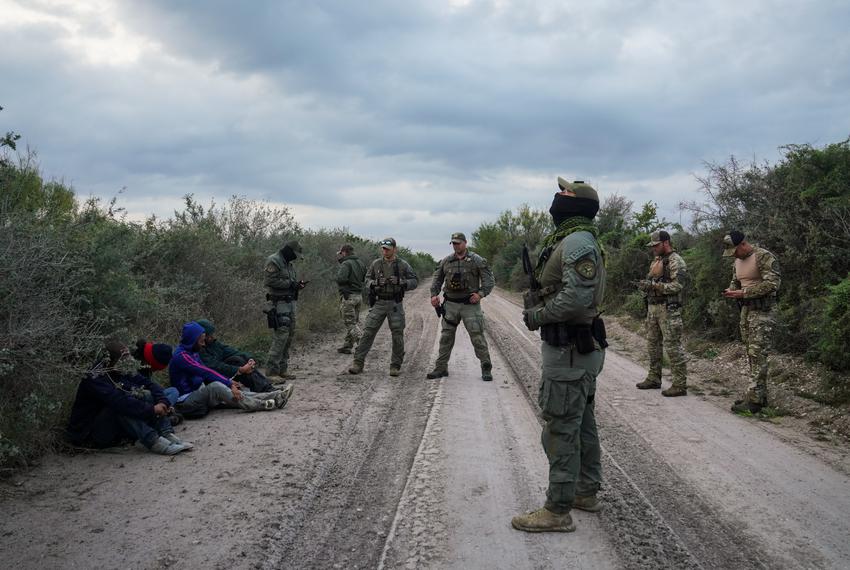In recent years, U.S. Customs and Border Protection (CBP) have widened the authority and scope of warrantless searches and seizures at the border. While the Fourth Amendment to the U.S. Constitution prohibits unreasonable government searches and seizures of people and their property without a warrant or probable cause, this right is not absolute, especially at the nation’s borders. There is an exception, known as the “border search exception.” This exception allows routine manual searches at the border of individuals and their property, including electronic devices such as computers, tablets, and cell phones. According to the American Civil Liberties Union (ACLU), not only do border officers have the authority to check travelers’ devices for evidence of illegal activity without probable cause or a warrant, and they even have authority to determine who is admissible into the U.S.. They are able to make decisions about admissibility without the authorization of an immigration judge, and their authority extends to those individuals that legally have the right to be in the United States.
The Supreme Court has reasoned in the past that there is less expectation of privacy at the border due to the public interest in preventing the entry of dangerous weapons, drugs, or illegal content into the country. Thus, U.S. Customs and Border Protection (CBP) officers, U.S. Border Patrol agents, U.S. Immigration and Customs Enforcement (ICE) Special Agents, and all other customs officers with the U.S. Department of Homeland Security (DHS), are permitted to search travelers and their belongings for criminal activity at random, simply by virtue of them being at the American border. This exception has not only been applied to the border itself, but also to searches at the border’s functional equivalent, such as international airports in the interior of the United States or fixed roadside checkpoints near the U.S. border.
While this exception has been in place for decades, it has become a larger privacy concern in the digital age because cellphones and computers now contain highly sensitive information, including everything from personal photos to tax records. This raises some important questions for travelers and immigrants about the powers of immigration official’s authority and how best to protect oneself in these encounters. The below ar esome frequently asked questions about searches and seizures at the border:
What is a Customs Officer?
Customs Officers work for the Department of Homeland Security within the U.S. Customs and Border Protection (CBP) and U.S. Immigration and Customs Enforcement (ICE) Office of Investigations. They are considered federal law enforcement officers working to enforce customs laws, immigration laws, and are present at every international airport, seaport, and all land border crossings.
Can an Immigration or Customs Officer Deny Entry into the United States?
Yes. Refusal to answer questions establishing your identity and failure to prove citizenship or lawful permanent residency may cause delays and lead to officers denying entry into the country. With no need for a warrant or probable cause, a customs agent can detain you at their discretion, question you, and search through all your belongings.
Are Immigration Officials Allowed to Stop People That Are Inside the U.S. but Not at the Border?
Yes. U.S. Customs and Border Protection is a federal agency tasked with patrolling the U.S. border and areas that function like a border, such as the airport. Federal law mandates that the CBP can board vehicles and vessels, conduct warrantless searches for people without immigration documentation as long as the search takes place “within a reasonable distance from any external boundary of the United States.” These “external boundaries” not only include international land borders, but also the entire U.S. coastline.
Can Border Patrol Agents Check Your Phone?
Yes. If they are determined to see what your phone contains, they can be aggressive about requesting your pin or password. If you refuse, federal agents can force you to unlock your phone using fingerprint or biometric identification if applicable, or simply detain your device until a legal search can be completed. This means you can be detained for an extended period of time, and even have your device sent to an expert to unlock it. Non-citizens run the risk of being denied entry if they refuse to provide a password and should consider the risk before proceeding. If an officer searches and/or confiscates your laptop or cell phone, get a receipt for your property.
Can Border Officers Arrest You?
Yes. CBP officers are federal agents, the same as FBI officers. Do not lie if under questioning, as deceiving them can result in a charge of “making false statements,” a federal crime that can result in jail time.
How Can You Protect Yourself?
As part of a search, CBP agents could easily open your mail or Facebook app and scan messages, friends, and recent activity. The easiest way to protect yourself is to travel only with the data you need. The safest option for protecting yourself would be to use a burner phone or laptop for traveling. If that’s not possible, then wipe your phone or laptop of any sensitive information (once backed up to a cloud service or external drive somewhere). This way, when entering the U.S., you can present your phone or laptop without worry. Additionally, protect the data you do carry with you through encryption (The iPhone uses encryption by default, and there are numerous solutions for doing the same to your Mac or PC laptop, as well as an Android device.). Disengage biometric unlocks, and when you travel, power down your device and use strong passwords for all apps.
When Should I Call a Lawyer?
Although CBP takes the position that you are not entitled to an attorney during primary and secondary inspection, it is encouraged to have the telephone number of an attorney or legal services organization with you and ask to contact them if you feel your rights are being violated, or if you have been detained for an unusually long period. For anyone attempting to enter the United States, if a customs officer or border agent informs you that you are under arrest, or if it becomes clear that he or she suspects you have committed a crime, you should ask to speak to a lawyer before answering any further questions — and if you wish to exercise your right to remain silent, you should say so out loud. You have the right to hire a lawyer, and have them with you at any hearing before an immigration judge, but the government does not have to provide one for you.
It is important to consider hiring an immigration lawyer if you are arrested or are being detained for a prolonged period of time. An immigration attorney helps to ensure your rights are not violated. At the Law Office of Robert J. Maher, P.C., we understand the challenges of being denied entry into the U.S. We’re here to help, contact us today to discuss your case. Below are some links of interest. Please reach out to our office with any further questions. We can be reached at the Law Office of Robert J. Maher, P.C. by calling (212) 939-7548 or [email protected]
*Please note this is NOT intended as legal advice and you should speak with an experienced immigration attorney for more information.
https://www.aclu.org/know-your-rights/immigrants-rights/#i-need-a-lawyer
https://www.businessinsider.com/can-us-border-agents-search-your-phone-at-the-airport-2017-2
https://www.jdsupra.com/legalnews/think-before-you-pack-that-laptop-7716341/
https://www.cbp.gov/sites/default/files/documents/search_authority_2.pdf
https://sgp.fas.org/crs/homesec/R46601.pdf






